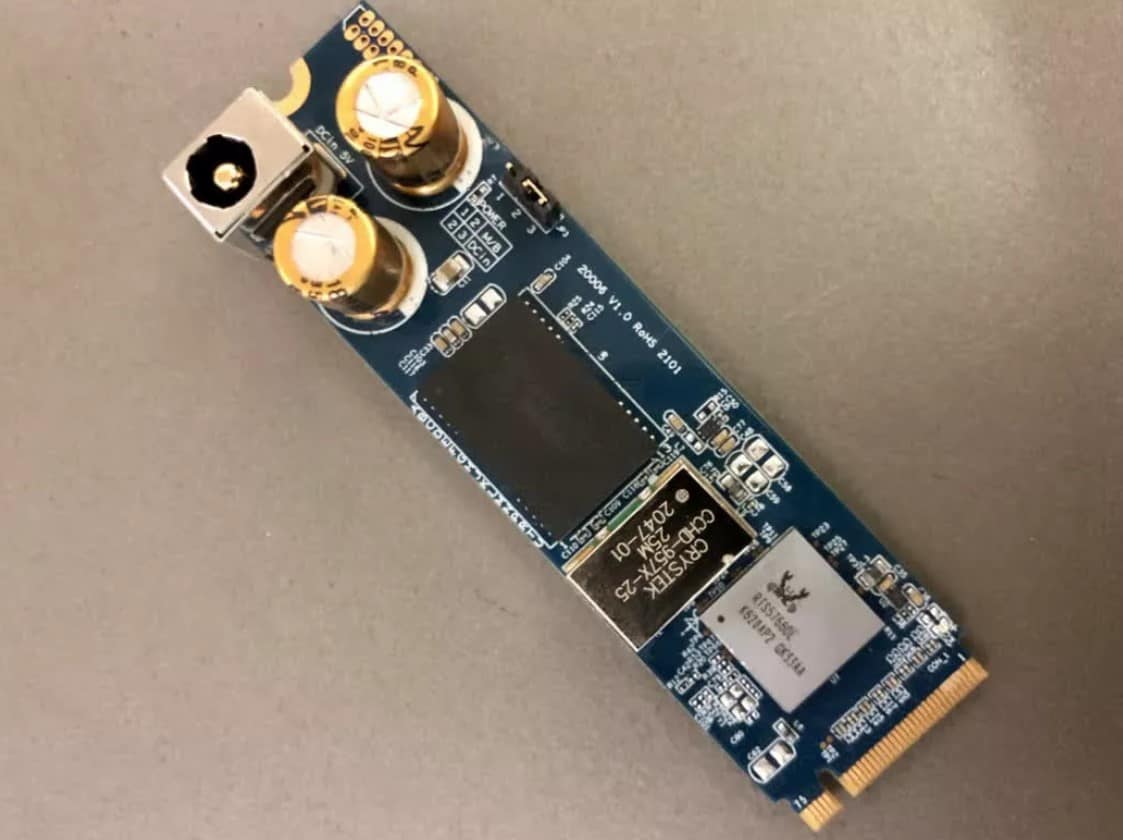WTF?! If there’s a sure-fire way that a company can justify selling everyday hardware for a high price, it’s by marketing it at audiophiles. The latest product to fall into such a category is an NVMe SSD created specifically for music lovers, though it’s highly debatable if it can perform any better at audio tasks compared to standard SSDs.
Spotted by Tom’s Hardware, the audiophile-grade SSD was posted to the audiophilestyle forums by its developer alongside some marketing blurb. They claim it’s been designed from the ground up and co-developed with a controller manufacturer. The co-developer is unnamed, but the picture of the SSD shows it with a controller from Realtek, which has a background in the sound processor business.
The drive comes with a Crystek CCHD-957 Femto clock oscillator, two Audionote Kaisei 220uf capacitors, 2oz copper 8 layer PCB, Milspec PCB stiffness, 300% grounding area, 5u gold plated connectors, and a CNC copper heatsink. What also separates it from other NVMe SSDs is the external 5V DC power input—it requires an external power source instead of being powered from the motherboard. Again, this is supposed to improve audio performance.
While the drive itself features 1TB of 3D TLC flash, users only have access to 333GB due to it running in a pseudo-SLC (pSLC) mode. The poster notes that this mode increases its lifespan by 300% compared to a standard SSDs and gives better performance — some current SSDs already have pSLC modes. They also claim this mode improves music quality over the standard TLC mode, as explained by this wine-like description:
The sound quality is just our test experience, this test is performed under the same standard product (PCB, external power jack, crystal oscillator, capacitors, etc. have not been modified).
TLC mode: It sounds like background music, no features and powerless, everything is flattened, lacks extension and density.
pSLC mode: There is a special natural feeling, it becomes more smooth and calm, the thickness is slightly increased, and overall it is more resistant to hearing but still slightly dry.
There are no other details about the drive, such as speeds, but it’s difficult to imagine it improving users’ audio listening experience seeing as this is just an SSD. Still, there are a lot of excited reactions on the forum.
No word yet on price as the maker is currently offering out 2 test samples to gather feedback. Expect it cost a small fortune when it does arrive, just like the “audiophile-focused” $10,000 Ethernet cable and $2,500 Ethernet switch.

